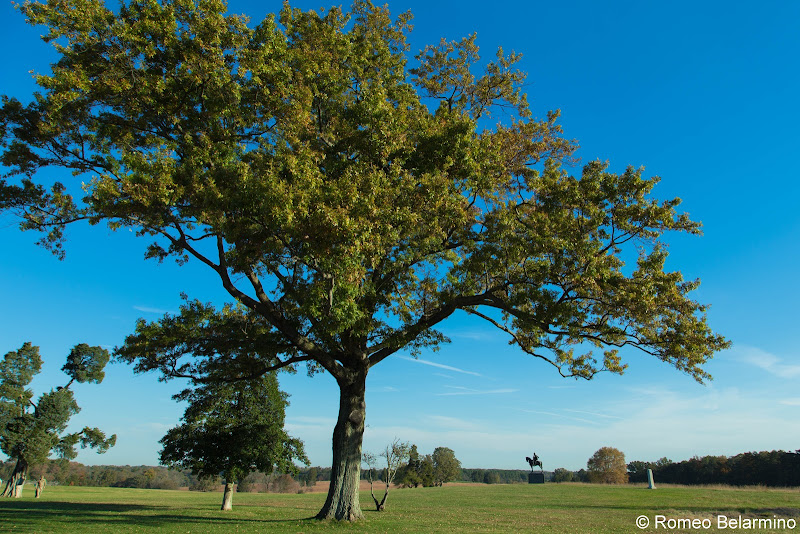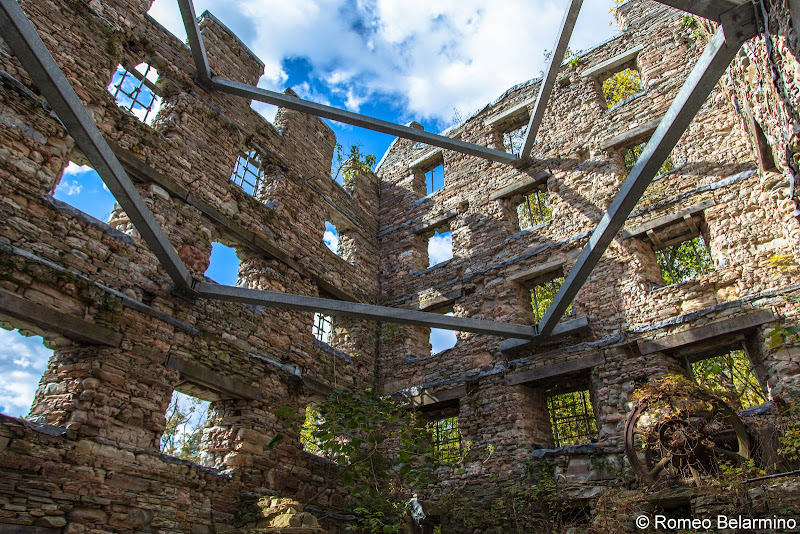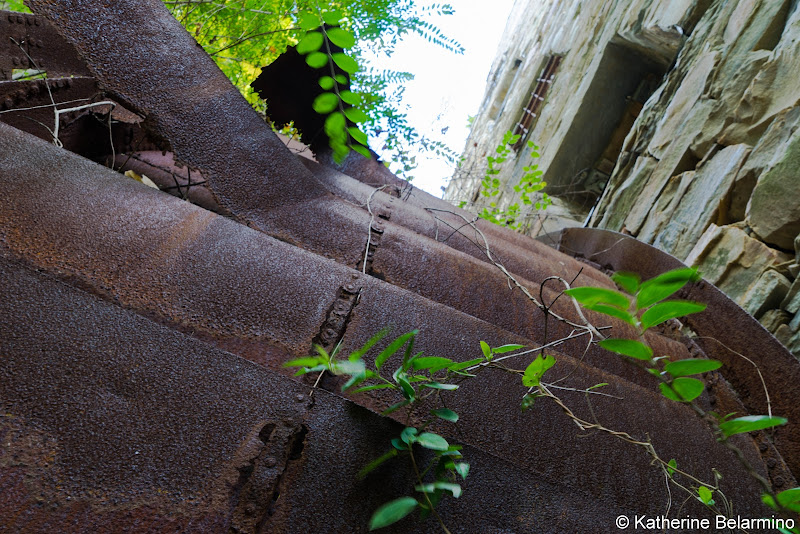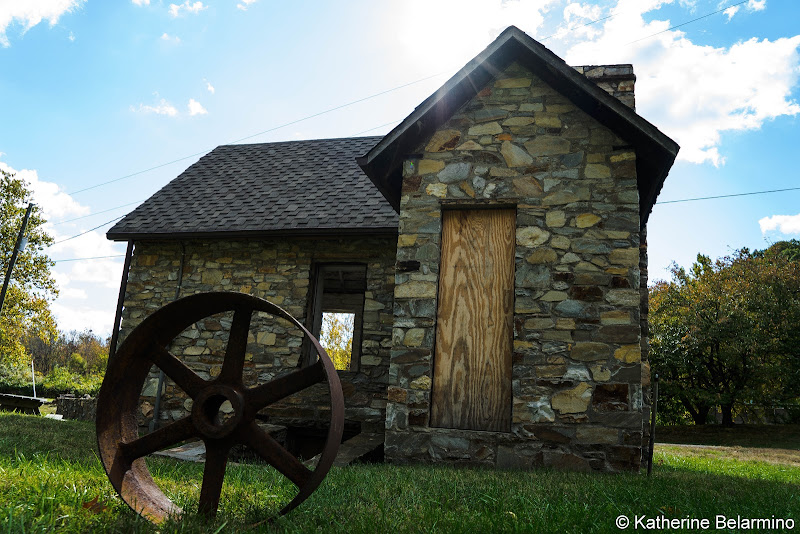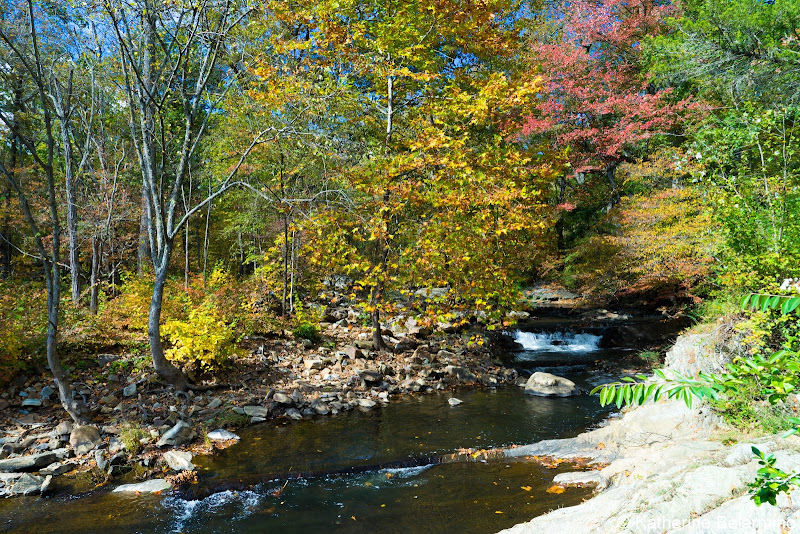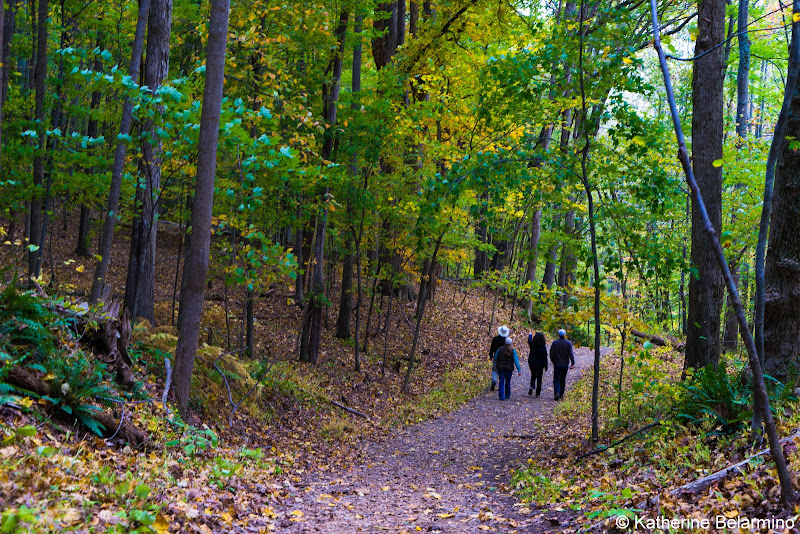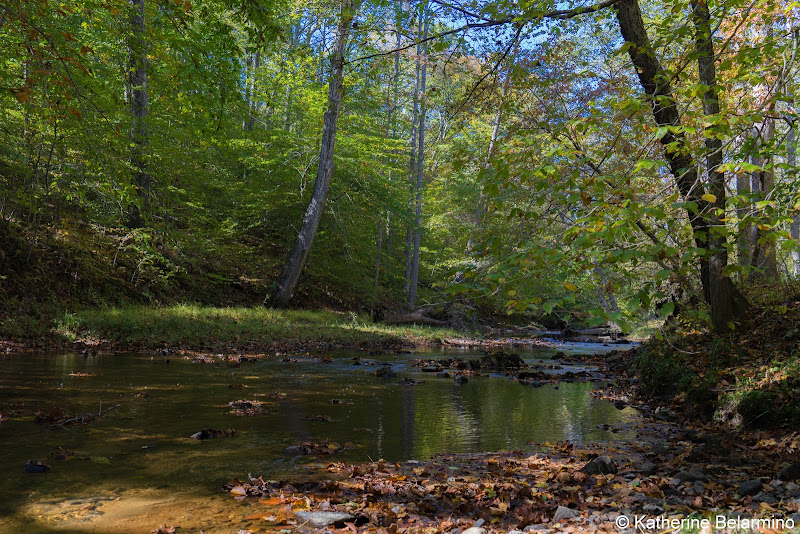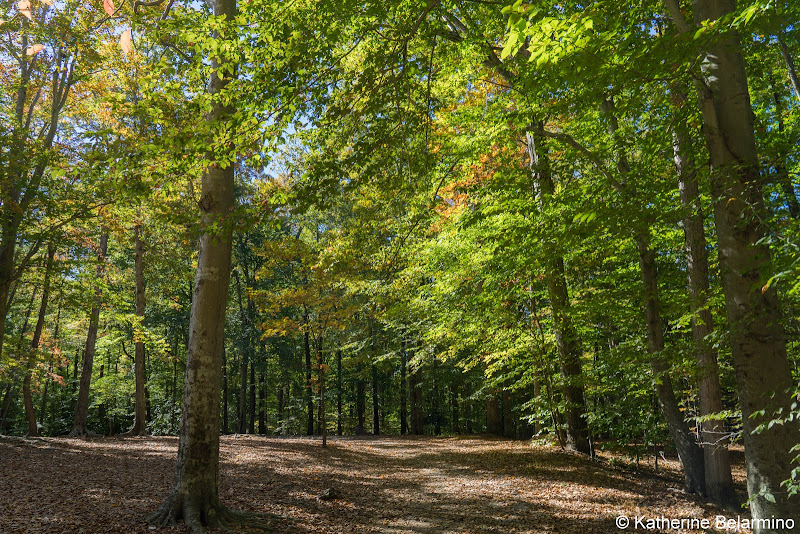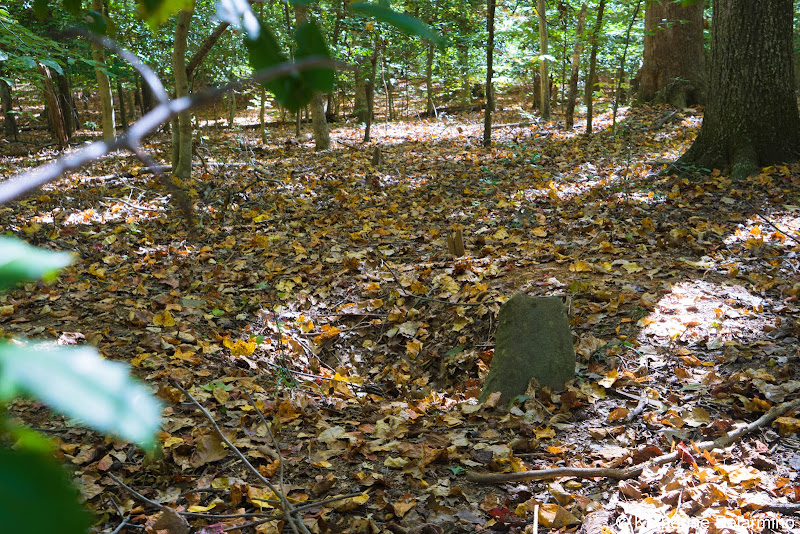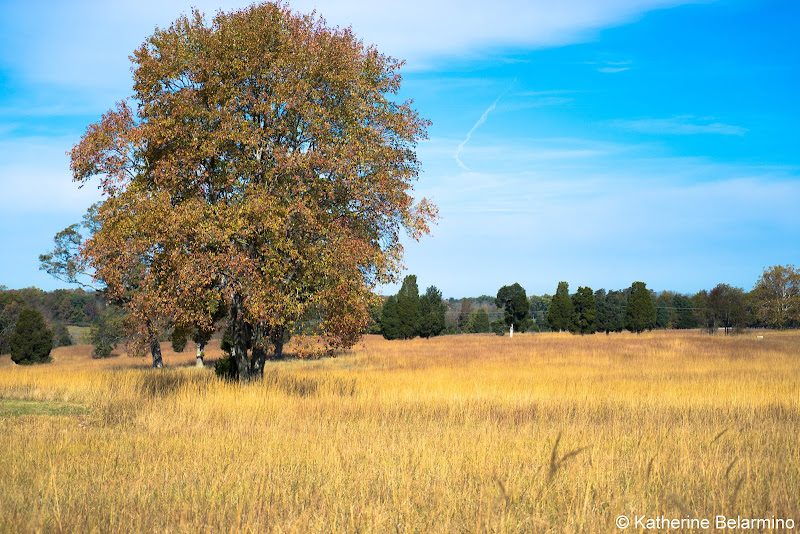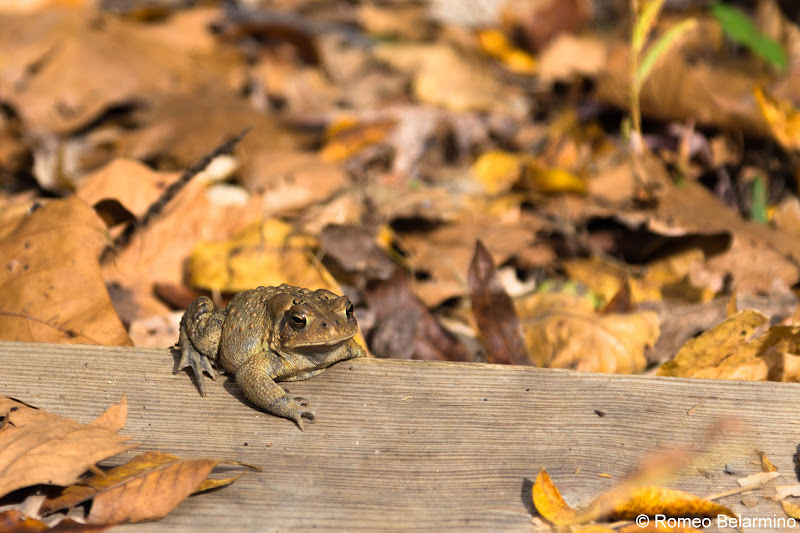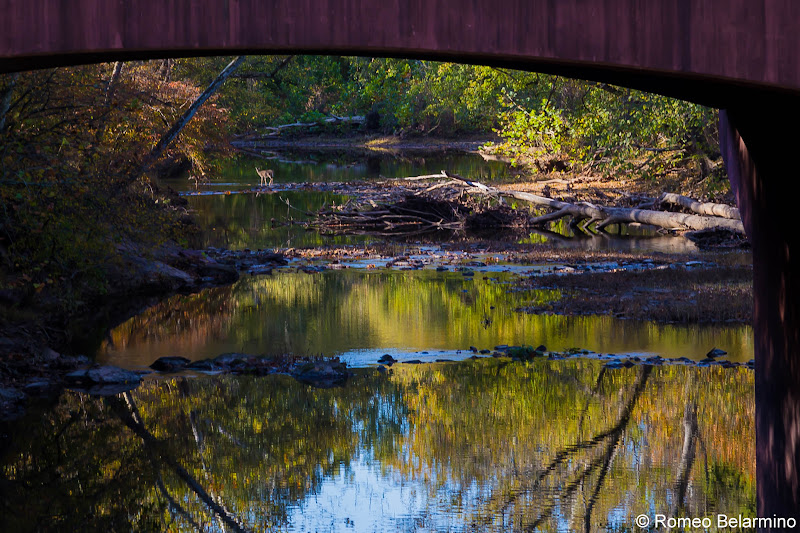During our Virginia weekend getaway in Prince William County, located in Northern Virginia less than an hour’s drive away from Washington, D.C., we spent a lot of time outdoors because it was fall and the leaves were just starting to turn color. There are a number of outdoor things to do in Northern Virginia. Since we were visiting for a long weekend, we couldn’t visit them all, but we did get to visit three great places for outdoor activities in Northern Virginia where we were able to hike, enjoy the scenery, and learn a little history as well.
Bull Run Mountains Conservancy
The Bull Run Mountains are part of the Blue Ridge Mountains mountain range in Northern Virginia. The Bull Run Mountains are protected by the Bull Run Mountains Conservancy, which offers walking trails and educational programs. (To learn more about their public programs, visit their website.)
We love old buildings and history, so our first stop during our visit to the Bull Run Mountains was the Chapman / Beverley Mill Historic Site. This mill was built in 1742 and is believed to be the tallest stacked stone structure in the United States. After the mill was nearly destroyed by arson in 1998, after surviving for over 200 years, the Turn The Mill Around Campaign (TTMAC) has worked on preserving the mill and making it accessible to the public. Their first order of business was stabilizing the mill, which is why you will see bracing bars in the interior. The mill and surrounding area is open to the public on the weekends only.
The mill was built by father and son Jonathan and Nathaniel Chapman. It was enlarged in 1758 and was used to process wheat and corn. It was already a prosperous mill because of its location between the Shenandoah Valley and the city of Alexandria, but the completion of the Manassas Gap Railroad in 1852 created even more opportunity for prosperity and the Chapmans enlarged the mill yet again. During the Civil War the mill was used to store meat for the Confederates and the Confederates burned the mill and the meat after the Battle of First Manassas. After the war, the Beverley family restored the mill and took ownership and the mill passed to different owners over the next few decades. The mill is steeped in war history as it provided cornmeal and flour during seven American wars: The French and Indian War, the Revolutionary War, the War of 1812, the Civil War, the Spanish-American War, World War I, and World War II. The mill finally ceased operations in 1946.
In front of the mill is the Beverley Mill Store. It was used as a general store and also as a post office. While you can see the highway nearby, it used to run right in front of the general store. The Beverley Mill Store is now a registered Virginia Historic Landmark.
If you (carefully) scramble up the rock located southwest of the mill, you will be treated to a picturesque sight of the Broad Run river trickling over a series of short waterfalls as it winds through the trees.
Behind the mill are the tracks of the still in use Manassas Gap Railroad.
After visiting the Chapman / Beverley Mill, take one of the five hiking trails in the Bull Run Mountains Natural Area Preserve, or create your own hike by following a combination of the five trails. The Green Loop trail is the longest and includes the mill, a fern hollow, and laurel thickets. The Red Loop trail passes Colonial and Civil War-era structures and a quarry trench used in the Civil War Battle of Thoroughfare Gap. The easier and shorter trails are Yellow Loop, Blue Spur, and Brown Trail.
Prince William Forest Park
To cover the most territory of Prince William Forest Park, visitors can drive the nine-mile loop scenic drive. A drive around the park passes trees, deer, bridges, boardwalks, and even a cemetery.
Prince William Forest Park has the largest number of preserved structures built by the Civilian Conservation Corps. Some of the original camps are listed on the National Register of Historic Places. Visitors can arrange ranger-guided tours to visit some of these original cabins.
During our tour of the camps, we also came across a spooky old graveyard. If you didn’t know what you were looking for, you might not even notice it. Amongst the trees are fairly deep depressions in the ground marked only with medium stones. It is believed these are graves of Union soldiers from the Civil War.
Manassas National Battlefield Park
While the main focus of the park is Civil War history, the park is 5,100 acres and provides numerous places for nature lovers to explore while still getting some Civil War history at the same time. In fact, Manassas National Battlefield Park has over 40 miles of hiking trails, many of which are punctuated by explanatory markers. Trails include the First Manassas Trail, Stone Bridge Loop Trail, Sudley Loop Trail, Matthews Hill Loop Trail, Henry Hill Loop Trail, China Ridge Loop Trail, Stuart’s Hill Loop Trail, Brawner Farm Loop Trail, Deep Cut Loop Trail, and Unfinished Railroad Loop Trail.
Manassas National Battlefield Park’s trails are popular not only with travelers, but also with the locals. We ran into a gentleman walking his dog while we were checking out the cannons and view on Matthews Hill.
The Stone Bridge Loop Trail is at the east end of the park. Hikers cross the post-Civil War Stone Bridge and follow a boardwalk trail along the Bull Run River. Keep your eyes open for wildlife. We spotted deer crossing the stream.
The Unfinished Railroad Loop Trail is a beautiful, forested hike along the unfinished railroad grade where the Battle of Second Manassas was fought. This hike is especially picturesque in fall when the leaves are changing color. Plaques along the trail describe the eventually unsuccessful bayonet charge by the Union brigade.
